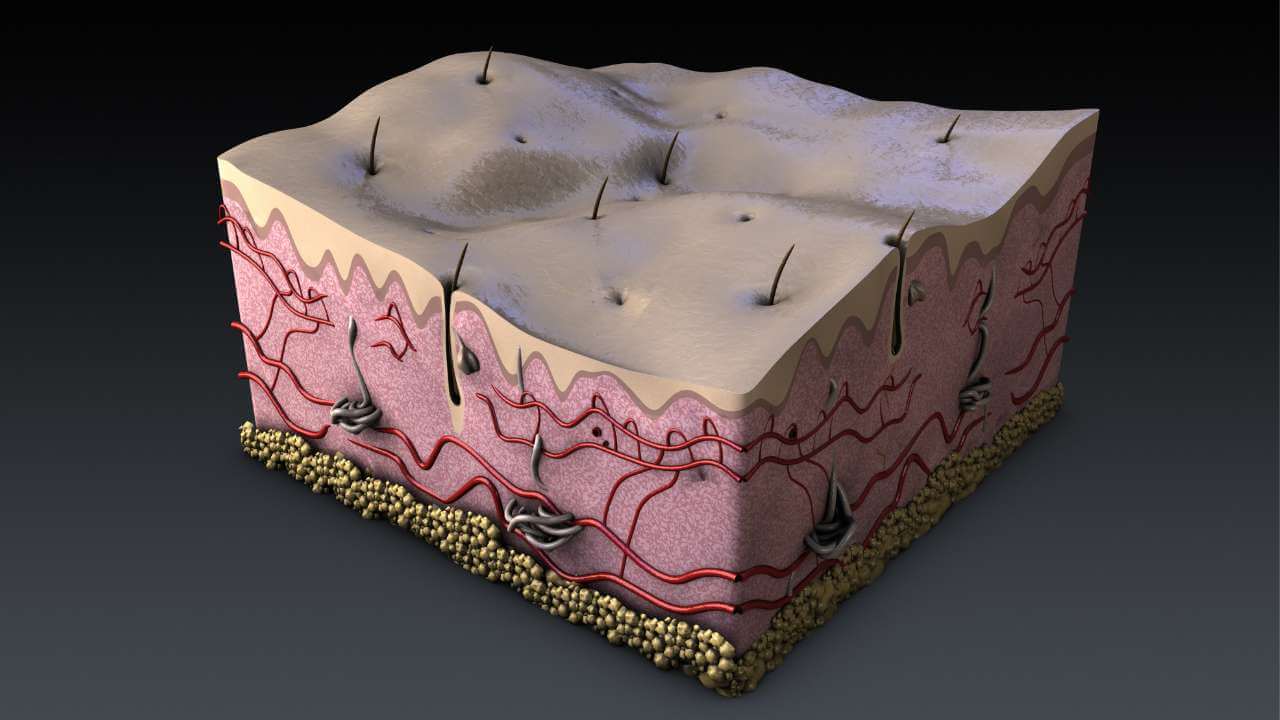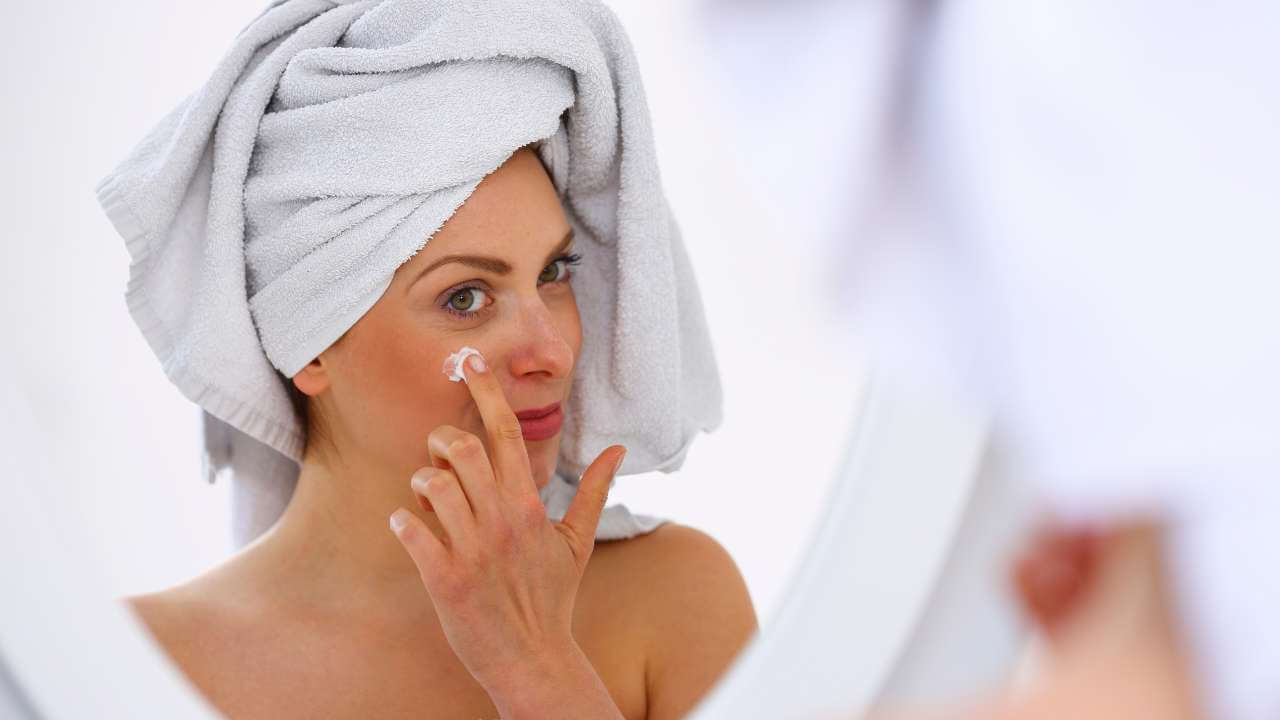Attention all skincare enthusiasts! Are you tired of dealing with dry, flaky, or irritated skin?
Do you want to achieve a healthy, radiant complexion? If so, it's time to focus on repairing your skin barrier! In this comprehensive guide, we'll dive deep into the science behind skin barrier function and why it's so important to keep your skin healthy.
We'll explore the various factors that can cause a damaged skin barrier, including harsh skincare products, environmental stressors, and even your diet.
But don't worry - we've got you covered with a range of effective solutions for repairing and strengthening your skin's protective barrier, from natural remedies to targeted skincare products.
So, whether you're dealing with a compromised skin barrier or simply want to maintain a healthy skin barrier, this guide has everything you need to revive your skin and achieve the glowing complexion of your dreams.
Are you ready to learn more? Let's dive in!

What Is The Skin Barrier?
Your skin is the largest organ of your body and consists of three crucial layers:
- Epidermis (outermost layer)
- Dermis (thick middle layer)
- Subcutaneous (fatty layer).
Particular importance should be placed on that outermost layer, the epidermis which acts as a barrier to help protect you from harm.
The outermost layer of the epidermis known as the stratum corneum also referred to as a "brick wall", forms this initial line of defense for your well-being.[1]

How Does The Skin Barrier Work?
Let's continue with the analogy of the brick wall as we mentioned above.
The stratum corneum, when viewed under a microscope, resembles the structure of brick and mortar or the appearanc of a protective brick wall. The layer is composed of corneocytes, which serve as the bricks, tightly bound together by a mortar-like mixture of ceramides, cholesterol, and fatty acids.
Within this layer lies an essential protein called filaggrin, which plays a significant role in creating natural moisturizing factors (NMF) for the skin.[2]
Essentially, the stratum corneum acts as a barrier or shielding brick wall to the environment, protecting our skin from harmful bacteria and external factors like:[3]
- Infectious agents
- Chemicals
- Systemic toxicity
- Allergens
Without a healthy, protective layer of skin, dangerous toxins and bacteria from external aggressors could easily enter your body and cause significant harm.
It also helps to keep our skin hydrated by preventing water loss and retaining moisture. Understanding the importance of this layer and its components is crucial in maintaining healthy skin.
Causes of Skin Barrier Damage
Various factors can disrupt the proper functioning of the skin barrier:
- Environmental factors, including excessive humidity or dryness
- Allergens
- Irritants and pollutants
- Prolonged sun exposure
- The use of alkaline detergents and soaps
- Exposure to harsh chemicals like sodium lauryl sulfate (SLS)
- Poor skin care routine: Over-washing or over-exfoliation
- Unhealthy diet[4]
- The use of steroids can also result in a damaged skin barrier
Furthermore, psychological distress and genetic factors can increase the risk of developing certain skin conditions, such as atopic dermatitis and psoriasis symptoms.[5]

Symptoms of A Damaged Skin Barrier
A damaged skin barrier can manifest in several different ways.
- Dry skin
- Redness caused by itchy skin
- Rough or discolored patches from post-inflammatory hyperpigmentation
- Decreased skin elasticity
- You may also notice an increase in breakouts, post-acne marks, or sensitive, inflamed areas of the skin. (If you already have acne-prone skin)
In some cases, a weakened skin barrier may lead to an increased risk of bacterial, viral, or fungal skin infections.
It is important to pay attention to these symptoms and take action to repair your skin barrier as soon as possible to prevent further irritation and improve your overall skin health.

How to Protect Your Skin's Barrier?
Protecting your skin's barrier is key to maintaining healthy, radiant skin. For those with sensitive skin, a compromised barrier can lead to a range of uncomfortable symptoms.
By taking steps to nourish and protect your skin cells, you can help ensure that your skin barrier remains strong and resilient, shielding your skin from harmful external factors.
1) Avoid Too Much Sun Exposure
Protecting your skin from the damaging effects of the sun is crucial in maintaining a healthy skin barrier and preventing skin conditions such as melasma and post-inflammatory hyperpigmentation. Harsh UVA and UVB rays can penetrate the skin's outer layers, causing damage that can lead to premature aging, dark spots, and an increased risk of skin cancer.
To protect yourself from sun damaged skin, it's essential to use a broad-spectrum sunscreen with an SPF of at least 30+ and to avoid sun exposure during peak times when the sun's rays are strongest.
In addition, wearing protective clothing such as long sleeves, pants, and wide-brimmed hats can help shield your skin from harmful UV rays, especially during hot and humid months.
By taking these steps, you can help safeguard your skin's pH and barrier and maintain a healthy, glowing complexion.
2) Moisturize Regularly
Moisturizing cream with active ingredients like hyaluronic acid, petrolatum, mineral oil, or glycerin can help protect and restore your skin barrier by providing necessary hydration for healthy skin.
An occlusive moisturizer creates a thin film (moisture barrier) on the skin that helps prevent moisture loss, making it a popular choice for those with dry skin. Petrolatum, in particular, can block up to 99% of water loss from the skin.[6]
Humectants, which draw moisture into the skin barrier, can also be effective in improving barrier function. Products containing hyaluronic acid, glycerin, honey, and urea are recommended by researchers for their ability to provide intense moisture and boost hydration levels while improving overall skin health.
3) Gentle Skin Care Habits for a Healthy Skin Barrier
When it comes to maintaining a healthy skin barrier, being gentle is key. Rough handling of the skin can cause damage, leading to a compromised barrier and a range of uncomfortable symptoms.
- To help protect your skin, it's important to take a gentle approach to your skin care routine. Only use lukewarm water and avoid prolonged exposure to hot water, which can strip the skin of its natural oils, and pat your skin dry with a towel instead of rubbing it.
- Choose a soothing body wash or a gentle cleanser that won't irritate sensitive skin, and be cautious when shaving to avoid cuts or scratches from using a dull razor that can lead to tiny red bumps and infection.
- Finally, resist the urge to scratch aggressively, which can further damage the skin barrier.
4) Healthy Diet Can Improve Your Skin Barrier
The saying, "You are what you eat," couldn't be more accurate when it comes to the health of your skin barrier.
Research shows that a diet rich in whole foods and healthy fats can do wonders for your skin.[4] Certain foods, such as those high in antioxidants and omega-3 fatty acids found in fish oil, can boost skin elasticity and promote a more youthful appearance.
In addition, staying hydrated by drinking plenty of water is crucial for maintaining a healthy skin barrier. The following list of foods is an excellent choice for promoting healthy skin:
- Carrots
- Apricots
- Leafy greens
- Tomatoes
- Berries
- Lentils
- Salmon
- Nuts
By incorporating these skin-boosting foods into your diet, you can help nourish your skin from the inside out and achieve a radiant, healthy complexion.
5) Replenishing Your Skin Barrier with Natural Oils
Plant oils have long been used for their nourishing and therapeutic properties in skin care. Recent research suggests that certain plant oils may also help repair and protect the skin barrier, preventing moisture loss and providing anti-inflammatory, antibacterial, and antioxidant benefits.[7]
Jojoba, coconut, almond, soybean, primrose, and black currant oils are among the most effective oils for promoting healthy skin.
These natural essential oils are rich in essential fatty acids, vitamins, and minerals that help to soothe, hydrate, and protect the skin barrier.
6) Strengthen Your Skin Barrier with Ceramide-Infused Formulations
Ceramides are a key component of a healthy skin barrier, playing a crucial role in maintaining its structural integrity. Research from 2019 suggests that pseudo-ceramide formulations can help improve the symptoms associated with a damaged lipid barrier, such as dryness, itchiness, and scaling.[8]
By incorporating ceramide-rich moisturizers into your skincare routine, you can help support and strengthen your skin barrier, promoting healthier, more radiant-looking skin.
7) Maintain a Healthy pH for Your Skin Barrier
Your skin's acid mantle, which has a pH of around 4.7, is essential in protecting your skin from harmful external factors. Experts recommend using gentle cleansers with a pH between 4.0 and 5.0 to avoid disrupting the skin's natural balance.[9]
While not all products list their pH levels, it's important to pay attention to those that do and select pH-balanced products that help support your skin's natural defenses.

Did We Mention...
Skin Barrier Repair FAQs?
Do you still have questions about the best practices for preventing damage to your skin's protective layer?
In this section, we'll answer some of the most commonly asked questions about the skin barrier, its functions, and how to maintain its health.
Q: Can Over-Exfoliating Damage My Skin Barrier?
Yes, over-exfoliating can damage your skin barrier, leading to a range of skin issues. When you exfoliate too often or with harsh products, you can strip away the skin's natural oils and disrupt the barrier's structural integrity.
This can cause dryness, irritation, inflammation, and other skin concerns.
To avoid damaging your skin barrier, it's important to exfoliate gently and not too frequently. A good rule of thumb is to exfoliate no more than three times a week, using a gentle scrub or glycolic acid cleanser with a pH-balanced formula.
Q: What Are Some Common Causes of Damage to The Skin's Moisture Barrier?
The skin's moisture barrier can become compromised by a range of external and internal factors, including harsh skincare products, excessive sun exposure, pollution, stress, and aging.
When the barrier is damaged, it can lead to a range of uncomfortable symptoms, including dryness, flakiness, and sensitivity. A board-certified dermatologist can help identify the causes of damage to your skin's moisture barrier and recommend appropriate treatments to restore and protect it.
Q: Can Your Skin Renew and Regenerate Skin Barrier on Its Own?
A damaged skin barrier may take up to two weeks - depending on the extent of damage- to heal itself, but only if you switch your exfoliators (acids and retinoids) for gentler and more soothing products.
With a simplified skincare routine and patience, the natural protective functions of your skin will improve. This will help your skin repel irritants and maintain healthy moisture levels, leading to healthier-looking skin.

The Final Mention
Your skin barrier is the key to healthy, glowing skin. By taking steps to nourish, protect, and repair it, you can help prevent a range of skin concerns, from dryness and sensitivity to acne and premature aging.
Whether you're dealing with a damaged skin barrier or simply looking to maintain your skin's health, the tips and strategies outlined in this comprehensive guide can help you achieve your goals.
So why not give them a try and let us know how it goes? We'd love to hear your thoughts and experiences in the comments below. Together, let's revive our skin and achieve our best, most radiant selves!
✅ 9 Sources
HealthMention only uses sources from authoritative and reliable resources, such as peer-reviewed studies, to strengthen the accuracy of our content.
- Rosso JD, Zeichner J, Alexis A, Cohen D, Berson D. Understanding the Epidermal Barrier in Healthy and Compromised Skin: Clinically Relevant Information for the Dermatology Practitioner. The Journal of Clinical and Aesthetic Dermatology. 2016;9(4 Suppl 1):S2-S8. https://www.ncbi.nlm.nih.gov/pmc/articles/PMC5608132/
- Robinson M, Visscher M, Laruffa A, Wickett R. Natural moisturizing factors (NMF) in the stratum corneum (SC). I. Effects of lipid extraction and soaking. Journal of Cosmetic Science. 2010;61(1):13-22. https://pubmed.ncbi.nlm.nih.gov/20211113/
- Kanwar AJ. Skin barrier function. The Indian Journal of Medical Research. 2018;147(1):117-118. doi:https://doi.org/10.4103/0971-5916.232013
- Parke MA, Perez-Sanchez A, Zamil DH, Katta R. Diet and Skin Barrier: The Role of Dietary Interventions on Skin Barrier Function. Dermatology Practical & Conceptual. 2021;11(1):e2021132. doi:https://doi.org/10.5826/dpc.1101a132
- Choe SJ, Kim D, Kim EJ, et al. Psychological Stress Deteriorates Skin Barrier Function by Activating 11β-Hydroxysteroid Dehydrogenase 1 and the HPA Axis. Scientific Reports. 2018;8(1). doi:https://doi.org/10.1038/s41598-018-24653-z
- Harwood A, Nassereddin A, Krishnamurthy K. Moisturizers. PubMed. Published 2020. https://www.ncbi.nlm.nih.gov/books/NBK545171/
- Lin TK, Zhong L, Santiago J. Anti-Inflammatory and Skin Barrier Repair Effects of Topical Application of Some Plant Oils. International Journal of Molecular Sciences. 2017;19(1):70. doi:https://doi.org/10.3390/ijms19010070
- Mori K, Seki T, Kaizu K, et al. Efficacy of a moisturizer containing a pseudo‐ceramide and a eucalyptus extract for Japanese patients with mild atopic dermatitis in the summer. Journal of Cosmetic Dermatology. 2018;18(3):850-856. doi:https://doi.org/10.1111/jocd.12735
- Blaak J, Staib P. The Relation of pH and Skin Cleansing. pH of the Skin: Issues and Challenges. Published online 2018:132-142. doi:https://doi.org/10.1159/000489527









